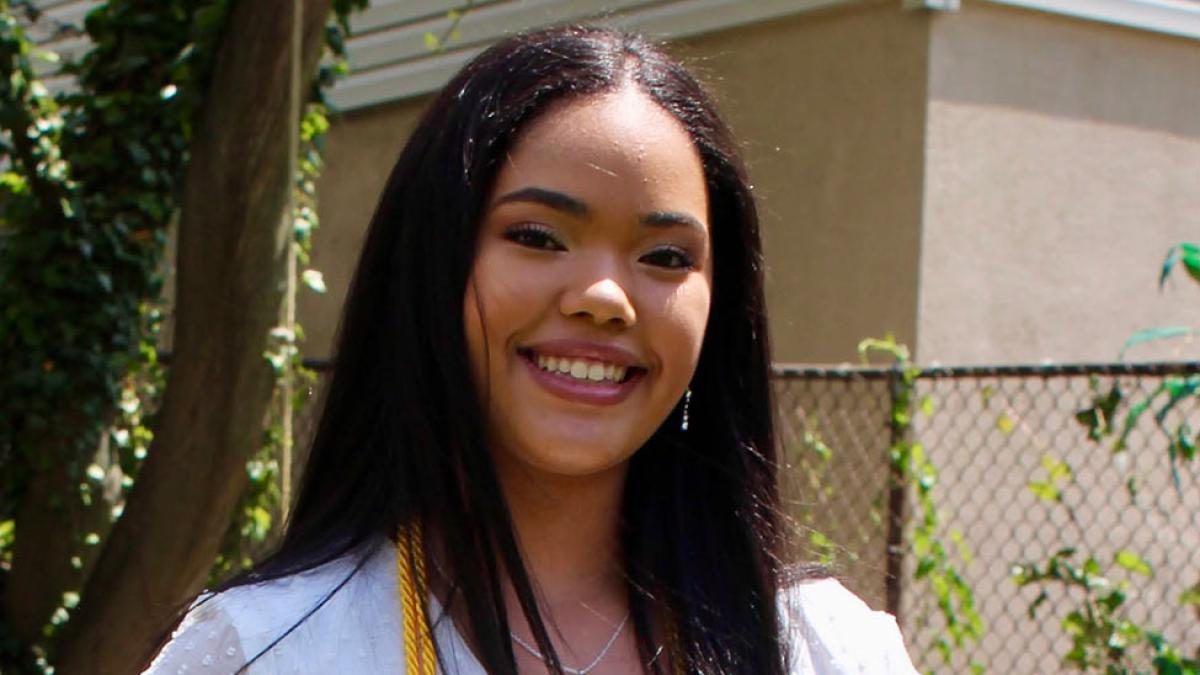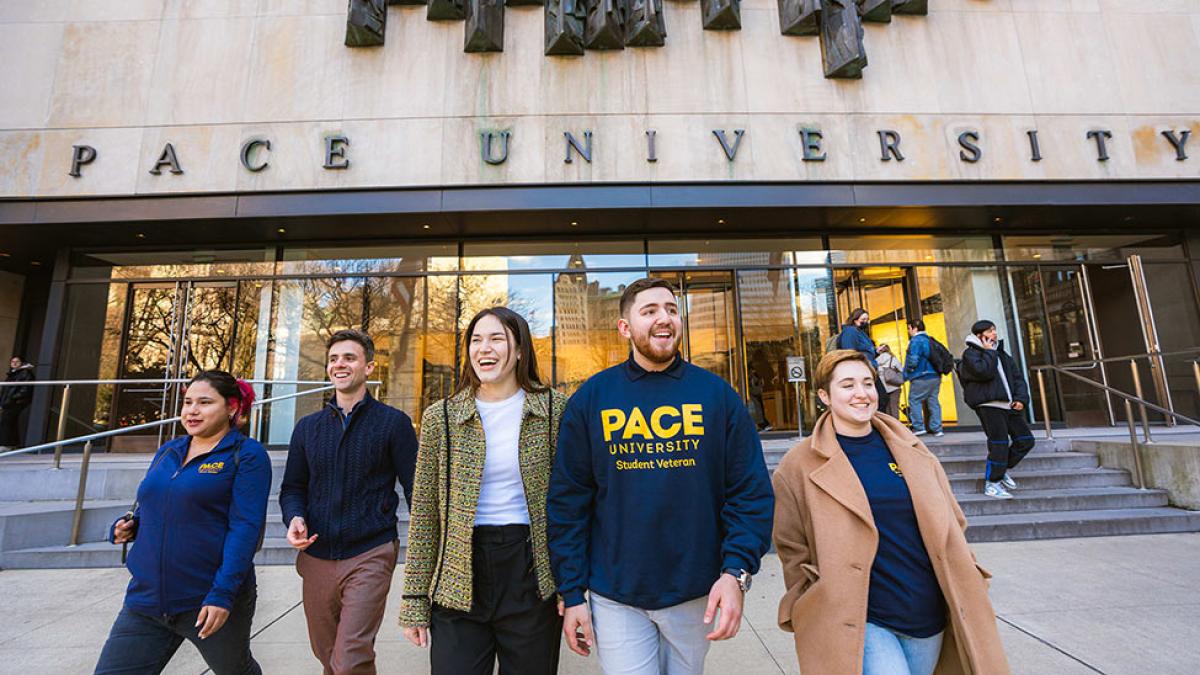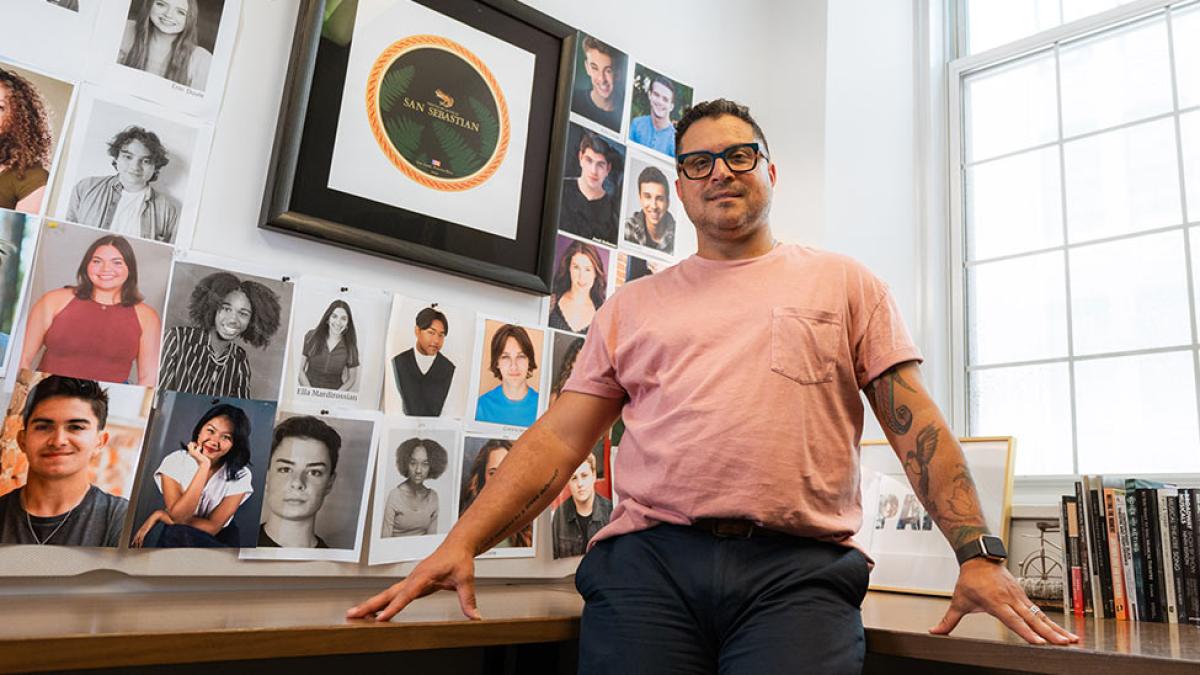From mentee, to mentor, to president of the First Generation Student program, Valentina Rojas Abreu ’24 knows the importance of community. Looking forward to National First Generation Student Day on November 8, Valentina reflects on the evolution of the first-gen program and what makes the first-gen community at Pace so special.
Why Water Quality — And Collaboration — Matters
Director of Blue CoLab John Cronin speaks with Bonita Springs Florida Weekly about why water quality and collaboration matters.
Cronin, now a professor at Pace University, once fought the polluters with lawsuits. Today he finds ways to influence attitudes. Protecting the environment, he believes, requires more than laws, regulations, and sanctions. It requires that we embrace environmental stewardship as a way of life.
Green Amendment Case Over Massive Landfill Is Under Appeal
Professor Nicholas Robinson speaks to Times Union about the Green Amendment case over massive landfill being under appeal and its potential broader impact.
“It’s going to be watched very closely,” said Nicholas Robinson, a law professor at Pace University’s Elisabeth Haub School of Law. “It will be persuasive to any other cases that are pending.”
NY’s Green Amendment Is A Useless Tool For Enforcing Odor Rules At High Acres Landfill, AG James Argues
Pace University School of Law has tracked Green Amendment claims that have sprung up in several other cases around the state, including the People of the State of New York v. Norlite (PDF).
Local Organic Farm Forced to Relocate; Explores Two New Locations
Elisabeth Haub School of Law Professor and staff attorney for the Food & Farm Business Law Clinic Jack Hornickel speaks with The Examiner News about a local organic farm being forced to relocate.
“The trend in the last few years of greater land unaffordability was fueled by COVID,” said Jack Hornickel, a staff attorney for the Food & Farm Business Law Clinic at Pace University in Pleasantville who has been advising Deacon. “It was an outward urban migration and because land values are driven by a free market, there are higher more profitable uses for the land than farming.”
Gypsy Rose Blanchard Is Free From Prison. Now She's Everywhere.
Dyson Professor Melvin Williams speaks with USA Today about Gypsy Rose Blanchard being free from prison and going viral over the internet.
"The curiosity fades hastily as algorithm-influenced digital publics move on to the next trending story, and Gypsy's transitory celebrity span fails to sustain interest," says Melvin Williams, associate professor of communication and media studies at Pace University.
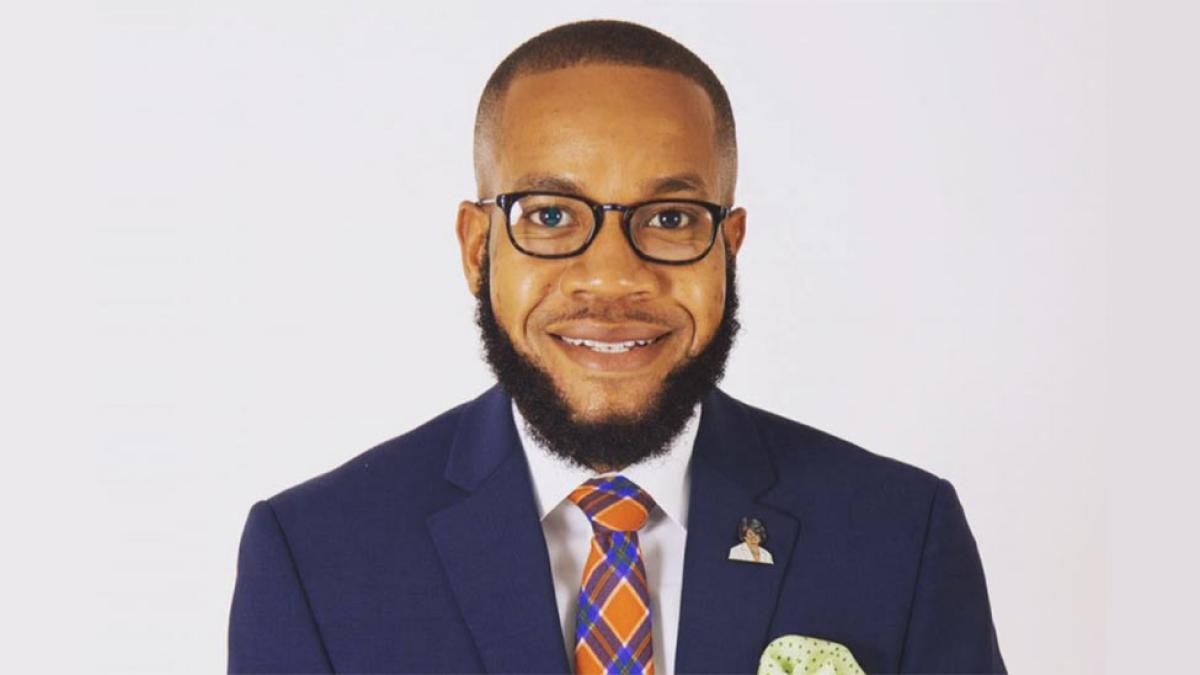
Support for Students Benefits Aging Populations
Students receive grant funding from Aging in America, Inc.
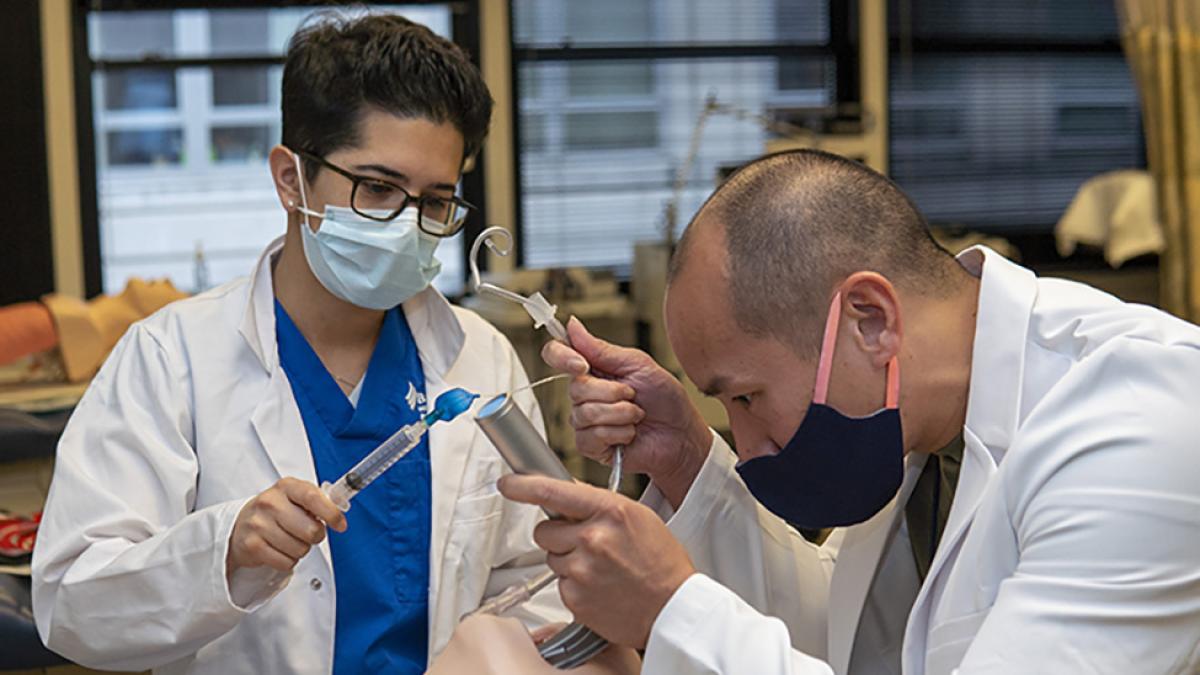
Pace University was awarded a $50,000 grant from Aging in America, Inc. to provide scholarships for students preparing for careers in gerontology. Ten students from Westchester County and New York City were awarded $5,000 each for academic year 2023–2024 tuition and related expenses, selected on the basis of need.
Pace’s innovative Adult-Gerontology Acute Care Nurse Practitioner (AGACNP) program prepares the next generation of nurses to make a difference for our growing elderly population by providing culturally competent, evidence-based primary care to individuals with acute, chronic, or complex illnesses.
A significant barrier preventing highly qualified students from pursuing nurse practitioner education is their financial resources. Support in the form of scholarships is, for many, the single greatest factor that makes pursuing this program possible.
The contribution from Aging in America, Inc. to my education will allow me to continue focusing on my studies and pursue my dream of becoming a Nurse Practitioner in underrepresented inpatient facilities.
—Melissa Cheung, student, Adult-Gerontology Acute Care Nurse Practitioner program
Support from Aging in America, Inc. to fund scholarships for students in the AGACNP program has a significant impact on Pace’s ability to recruit and retain bright and diverse students with promising career paths by eliminating one of the most daunting barriers to students’ resilience in completing a professional degree in nursing.
Maintaining a talented and diverse student body in the program requires that we acknowledge the challenges students face and invest in them to help meet the needs in gerontology care. Scholarship support makes an important difference, particularly for those from economically disadvantaged backgrounds who may feel that a degree in nursing is not a viable option if it means assuming additional debt. It can also significantly enhance the educational experience, allowing our nursing students to focus on their class participation, laboratory and simulation assessments, and clinical performance without the burden of additional student loan debt or multiple jobs.
We are so grateful for the scholarships that the Aging in America, Inc. grant has provided our students. As the population continues to age in the United States, adult-gerontology acute care nurse practitioners will be an integral part in their care. These scholarships allow for more students to gain the specialty training needed to provide care for the geriatric population. These scholarships not only lessen the burden of tuition for our students, but also will ensure we can continue to work on decreasing the national provider shortage affecting our elderly.
—Ingrid Bell, DNP, RN, AGACNP-BC, FNP-C, program director, Adult-Gerontology Acute Care Nurse Practitioner
About the Adult-Gerontology Acute Care Nurse Practitioner, MS program at Pace University: The Adult-Gerontology Acute Care Nurse Practitioner Master of Science Program prepares specialized nurse practitioners to provide culturally competent primary care for older adults with acute, chronic, or complex illnesses. Students participate in clinical placements in a variety of acute care settings, including medical/surgical, trauma, and intensive care units; inpatient and outpatient specialty care clinics; and long-term care facilities, including care for the frail elderly and palliative care. Through collaboration with local healthcare institutions and senior centers, students and faculty contribute to a growing body of knowledge about the physiological, psychological, and social aspects of aging that informs evidence-based geriatric care.
About the College of Health Professions at Pace University: Established in 2010, the College of Health Professions (CHP) at Pace University offers a broad range of programs at the bachelor, master's, and doctoral levels. It is the College's goal to create innovative and complex programs that reflect the changing landscape of the health care system. These programs are designed to prepare graduates for impactful careers in health care practice, health-related research, or as educators, and equip graduates to work in health policy and global health fields. Students in clinical programs receive hands-on training in the College's interprofessional Center of Excellence in Healthcare Simulation and have the opportunity to apply their developing skills in real-world settings at many of the regions' leading clinical facilities.
The College currently comprises several growing and important areas of study, which include Nursing, Physician Assistant, Communication Sciences and Disorders, Health Science, Occupational Therapy, Health Informatics, Public Health, and Nutrition and Dietetics.
About Pace University: Since 1906, Pace University has been transforming the lives of its diverse students—academically, professionally, and socioeconomically. With campuses in New York City and Westchester County, Pace offers bachelor, master, and doctoral degree programs to 13,600 students in its College of Health Professions, Dyson College of Arts and Sciences, Elisabeth Haub School of Law, Lubin School of Business, Sands College of Performing Arts, School of Education, and Seidenberg School of Computer Science and Information Systems.
About Aging in America, Inc. (AIA): Aging in America provides assistance and support to individuals, families, and caregivers so that they can remain a vital part of their communities. The organization's mission has evolved to inspire innovation that empowers, guides, educates, and supports those who need it most. AIA and its related entities sponsor numerous programs to promote or improve health, facilitate access to care, nurture innovation, provide financial assistance, and help prepare future leaders in the field of Aging services.
More Form Pace
For the third consecutive year, Military Times has named Pace University to its list of best schools for military service members and veterans.
Jesse Carlo, PhD, assistant professor and chair at Pace University's Sands College of Performing Arts, is lighting up the stage and inspiring our students to reach for the stars. From Broadway to the classroom, we're taking audacious steps in the world of musical theater with our unique Life Experience Route.
Author-Entrepreneur with a Scientific Mind: Q+A with Glen Laman '73
Jamaican American entrepreneur and trailblazing author Glen Laman ’73 is a Dyson alumnus whose success has been built on a foundation of the liberal arts and sciences.
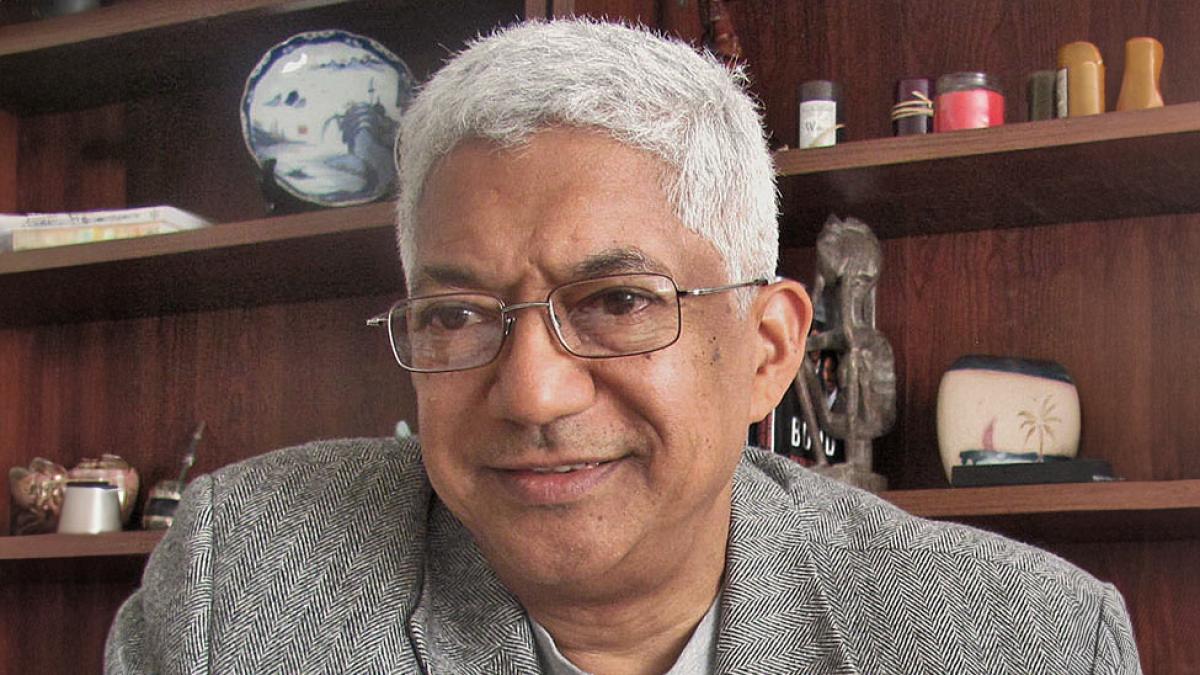
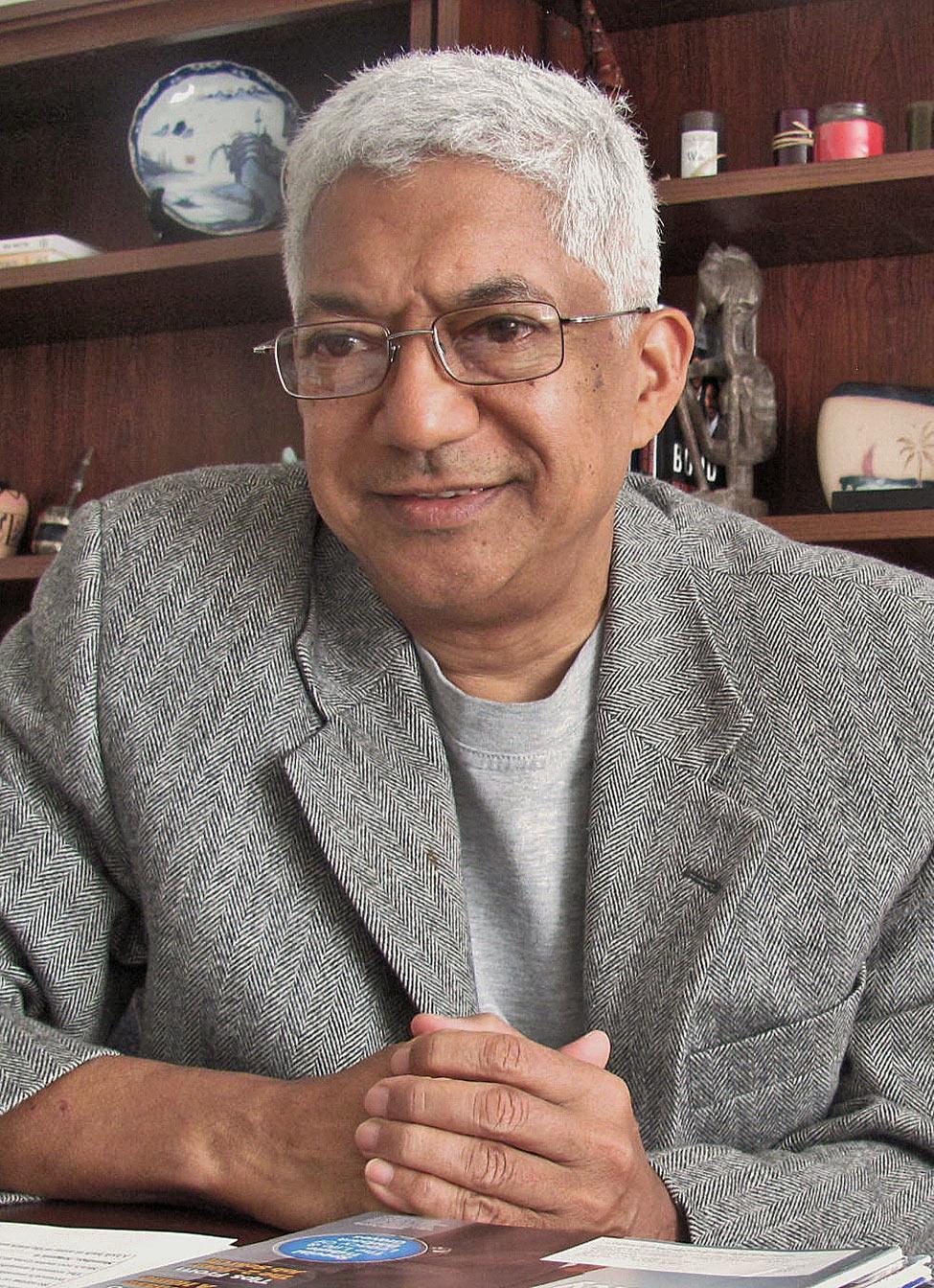
Glen Laman
Class of 1973
Bachelor of Science in Biology/Pre-professional Track
Glen is a Jamaican-born entrepreneur with an extensive career both in corporate America as an information technology and business project manager and as a founder of many businesses.
How did you get started in your career and what is your focus today?
When I first arrived in the United States in 1969, I took a short course in computer programming, with the intention of working while going to college, but soon realized I needed a degree to get a job in this fast-growing field. By the time I enrolled at Pace, however, I considered going to medical school, and so, I graduated with a degree in biology, and was even accepted into medical school. I had almost forgotten about my passion for computer programming, until I was hired into a training program which allowed me to get my foot in the door and later become a certified project manager and work for several Fortune 500 companies including Coca-Cola, JCPenney and AT&T.
As an entrepreneur, I once owned a restaurant in a mall food court and, later, a distribution business in which I imported frozen coconut water and juices from a farm in Jamaica. I especially enjoyed the latter, as I was able to meet many business owners and hear their stories of how they got started. Today, I am focused on writing and want to illuminate Jamaican culture via stories.
You have authored books, including the well-received Jamaican Entrepreneurship, the first of its kind on this topic, and, most recently, a collection of 15 short stories entitled The Hero of Fern Gully and Other Jamaican Short Stories, with another book of short stories forthcoming. Please tell us more about the inspiration behind both of your books.
My first book, Jamaican Entrepreneurship, was the subject of my doctoral dissertation at the University of Management and Technology, for which I interviewed over 20 very successful Jamaican entrepreneurs as a part of my research as well as discussed Jamaica’s history and socioeconomic challenges. I am quite proud of this book, as I had not previously seen anything that covered the stories of these very successful Jamaicans and the obstacles they overcame on the road to success. I was inspired by them and felt others would be as well.
The Hero of Fern Gully is a book of short stories on 15 ordinary Jamaicans going about their everyday lives that I coauthored with my friend, Basil Kong, during the COVID pandemic, when we were both looking to keep our minds engaged and, as many others, trying to cope with the isolation resulting from the virus. We often traded stories of our childhood growing up in rural Jamaica, and it occurred to us that it would be good to preserve those memories of an earlier and simpler time in Jamaica’s history. Also, everyone is familiar with the island's sea, sand and sun, but you never read of the daily struggles and triumphs.
Going to Pace instilled in me confidence that I could solve problems and exposed me to a much wider world than I had been accustomed to previously.
How has your major in the Bachelor of Science in Biology/Pre-professional Track prepared you for your professional journey, and how has your time as a student influenced you to become the person you are today?
Going to Pace was a great experience. It instilled in me confidence that I could solve problems and exposed me to a much wider world than I had been accustomed to previously. I took difficult courses such as calculus, organic chemistry, physics, and vertebrate anatomy, and did very well in them. In addition, a course taken in logic had been meaningful to me in the running of my businesses.
I also found being a part of the debate team very rewarding. We often traveled to other colleges for competitions, and I recall the topic debated my first year was whether or not the Nixon administration should impose wage and price controls to stem inflation. My exposure to so many diverse experiences both inside and outside of the classroom has shaped my thinking on many things and made me realize that there are usually at least two sides to every issue, and I learned to study both.
What are some of your fondest memories as a Dyson student?
I can still recall some memorable interactions with faculty who were kind and professional individuals whose attitudes remain with me to this day. In one class, our English professor exclaimed, “It’s such a beautiful spring day, let’s have class in the park.” The whole class crossed the street, and we sat under a tree in City Hall Park. Then, there was the time our animal behavior professor traveled to Jamaica and brought back a hermit crab for each student. We were to take the crabs home and teach them to do something which we would, in turn, demonstrate in our biology class.
What advice would you give to our students, as they navigate their college life?
I would encourage everyone to soak up the college experience, as there is so much to learn. Also, try to participate in as many activities as possible, as some of the greatest lessons learned are from outside of the classroom.
Window of Opportunity: Combining Technology and Design to Build a Career
Susanna Lammervo (MS in Human-Centered Design ‘23) first learned about the NYC Design Factory program sitting in her Information Architecture class, taught by Seidenberg Professor Andreea Cotoranu.
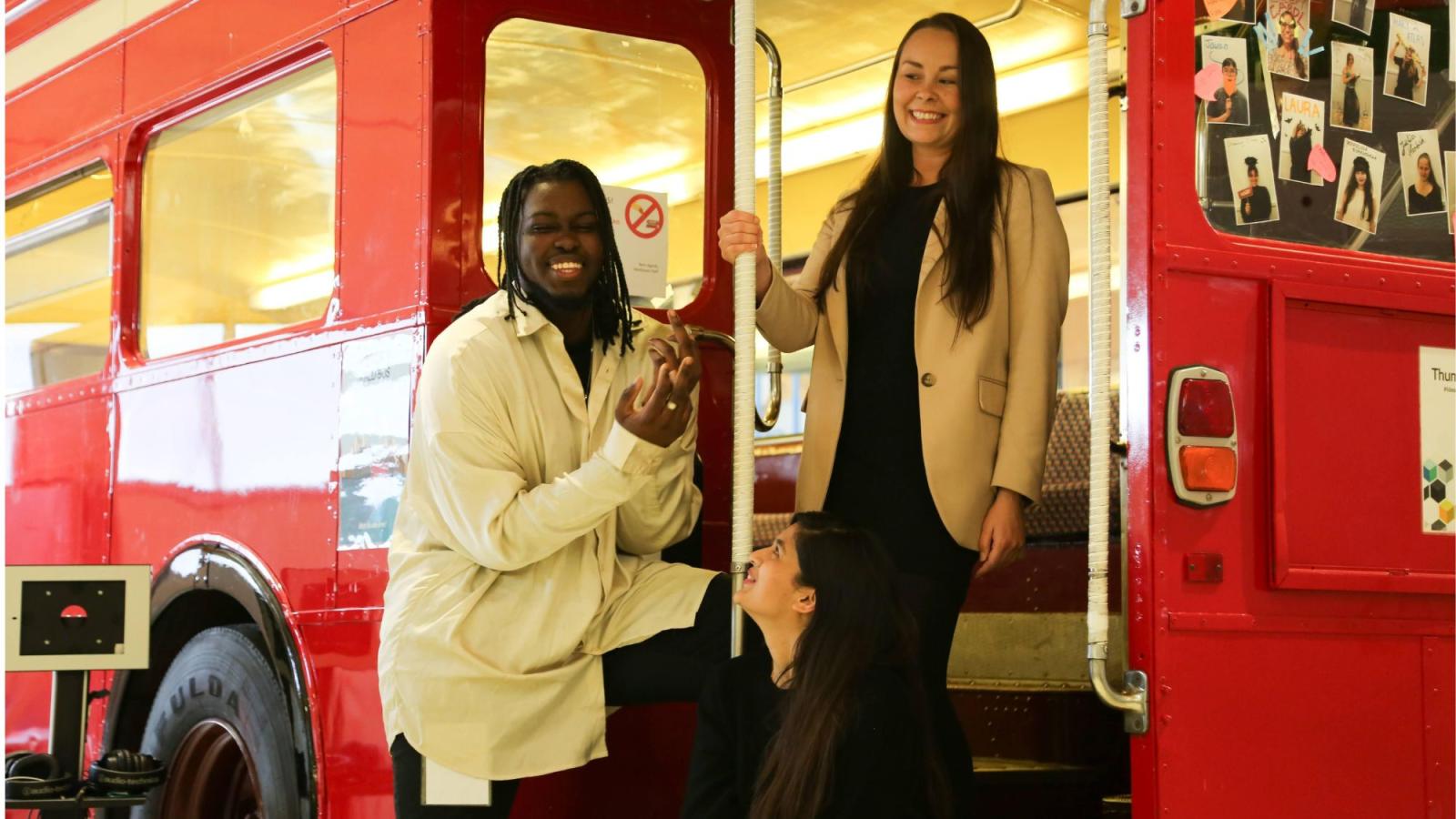
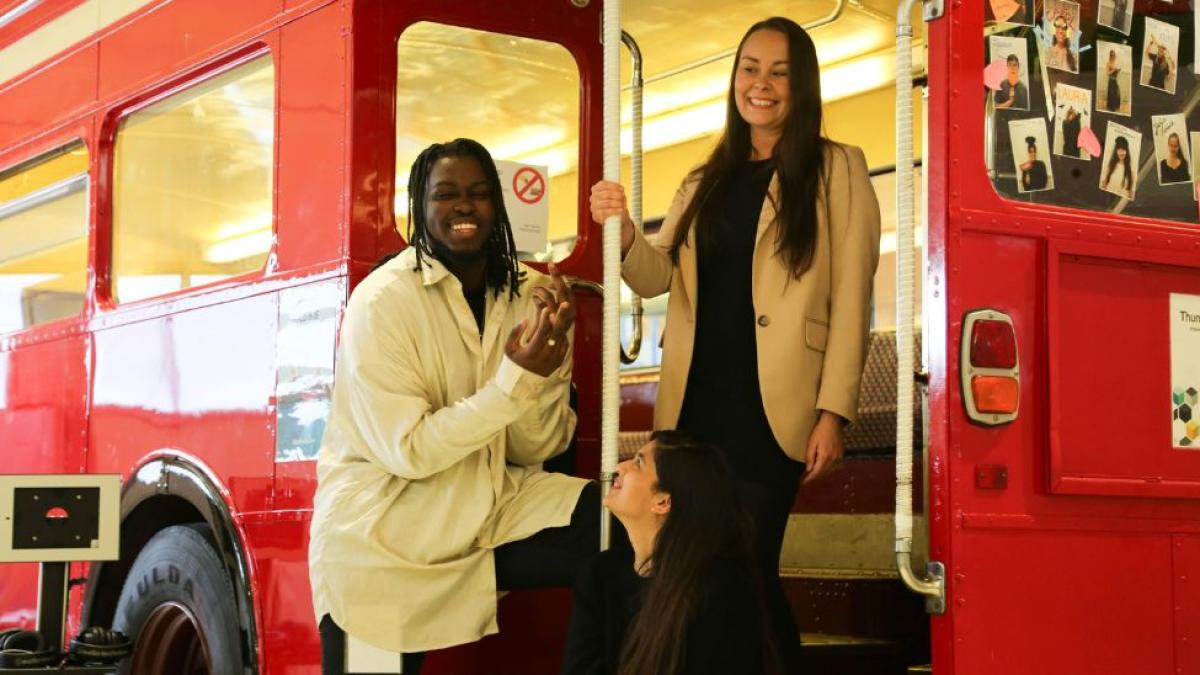
Susanna Lammervo (MS in Human-Centered Design ‘23) first learned about the NYC Design Factory program sitting in her Information Architecture class, taught by Seidenberg Professor Andreea Cotoranu.
“Through my first semester of the HCD program, I started learning little by little about the NYCDF and became curious about what they do,” Susanna says. She was determined to find out more. From then on, Susanna would be taken on a transformative journey to Geneva, Switzerland, where she joined Team Fusion to solve complex, global issues with radical solutions first-hand.
NYCDF is part of the Design Factory Global Network (DFGN), a group of education and research institutions worldwide dedicated to innovative solutions. Priding itself on complex problem-solving, the network aims to spark new developments in the world of cutting-edge research and advanced learning practices, connecting universities and research institutions from all across the globe to participate in the pursuit of knowledge. Despite specific obstacles–language barriers, time zones, organizational differences–these international hubs provide a ground-breaking edge to the concept of collaboration and efficiency.
Professor Andreea Cotoranu, along with Luke Cantarella, Dyson Film and Screen Studies chair, traveled with Team Fusion to Geneva where they would discuss their assigned project and primary goal at CERN, the European Organization for Nuclear Research. Yes, Pace students go to CERN! Team Fusion’s goal was to work towards the United Nations Sustainable Development Goal 3, contributing to proper well-being and good health. As Susanna puts it, “My team was working with a problem space focused on New York, where we aimed to innovate a future-focused, tech-based solution to reduce traffic accidents and injuries in urban settings.”
“A really cool aspect about the trip is that you get to discover so many things related to the universe, world, society, people, and about yourself that you had no idea existed," said Susanna.
The two-week immersive trip to Geneva was a great way to get inspired for a better future and find my identity as a fresh designer in the field. I don't think I have ever learned as much as I did during this trip to CERN.
“You will learn how to view problems from a bigger perspective, but still dive into the deep end when getting to know different societal challenges and technologies in big science.”
How did the project turn out for Susanna and Team Fusion? “Our eight month long journey culminated in a presentation of our research findings alongside design innovation to the Global Design Factory network, followed by an opportunity to exhibit our work at a showcase event held at the University of Bologna in Italy. I had the honor of traveling to Europe for the second time during our project and serving as an ambassador for our team while sharing the outcomes of our work with a diverse audience of students, educators, scientists, and researchers from all over the world.”
The NYC Design Factory offers a window of opportunity for any student looking toward a career in technology and design. “If you are not yet sure what your concentration in the design field could be, this class with Design Factory can help you find it.” For Susanna, her particular interest lies within urban studies and digital infrastructure, something that she might’ve taken a bit longer to figure out herself. For any student wanting to expand their academics, as well as a career outside of college, the New York City Design Factory might be the program for you.
Fostering International Conversation
Professor Nicholas Robinson’s article, Fostering International Conversation, co-authored with Dr. Grethel Aguilar Rojas of the IUCN, was published in AAAS Science Policy Forum. The article discusses how international laws seek to half the mass extinction of species on Earth today, beginning with the Endangered Species Act, and the Convention on the International Trade in Endangered Species, which are 50 years old this year.
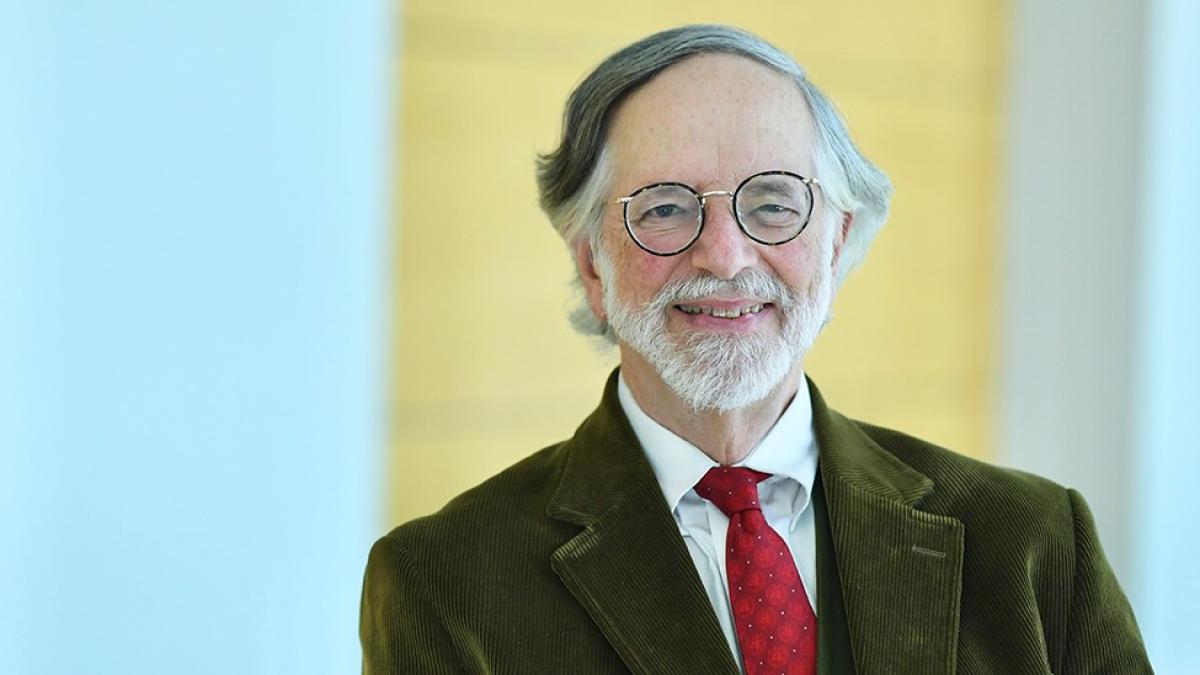
Professor Nicholas Robinson’s article, Fostering International Conversation, co-authored with Dr. Grethel Aguilar Rojas of the IUCN, was published in AAAS Science Policy Forum. The article discusses how international laws seek to half the mass extinction of species on Earth today, beginning with the Endangered Species Act, and the Convention on the International Trade in Endangered Species, which are 50 years old this year.
As an officer of the International Union for the Conservation of Nature (IUCN), Professor Robinson’s distinguished career includes decades of work on these efforts to foster international conservation.
Legal Scholar: Clarence Thomas “Corruption” Almost “Certainly Unlawful And Ethically Reprehensible”
But there are few tools available to hold the justice accountable, says Pace University Law Prof. Bennett Gershman. Thomas' willingness to receive such benefits, including trips and vacations which total in the millions of dollars, is almost “certainly unlawful and ethically reprehensible,” Bennett Gershman, a former New York prosecutor and law professor at Pace University, told Salon. “We have never seen a situation like this before,” Gershman said. “Thomas could be removed from the Supreme Court for his misconduct but won’t be. He won’t leave voluntarily even if he doesn’t like the pay. He has lifetime tenure. His position appears to be to stonewall his detractors and continue to serve on the Court, serving without much distinction, but with considerable power.”
